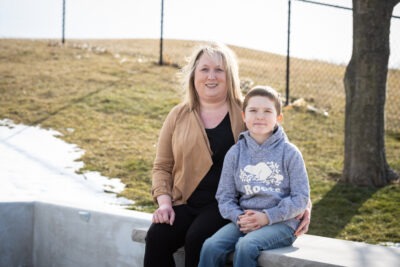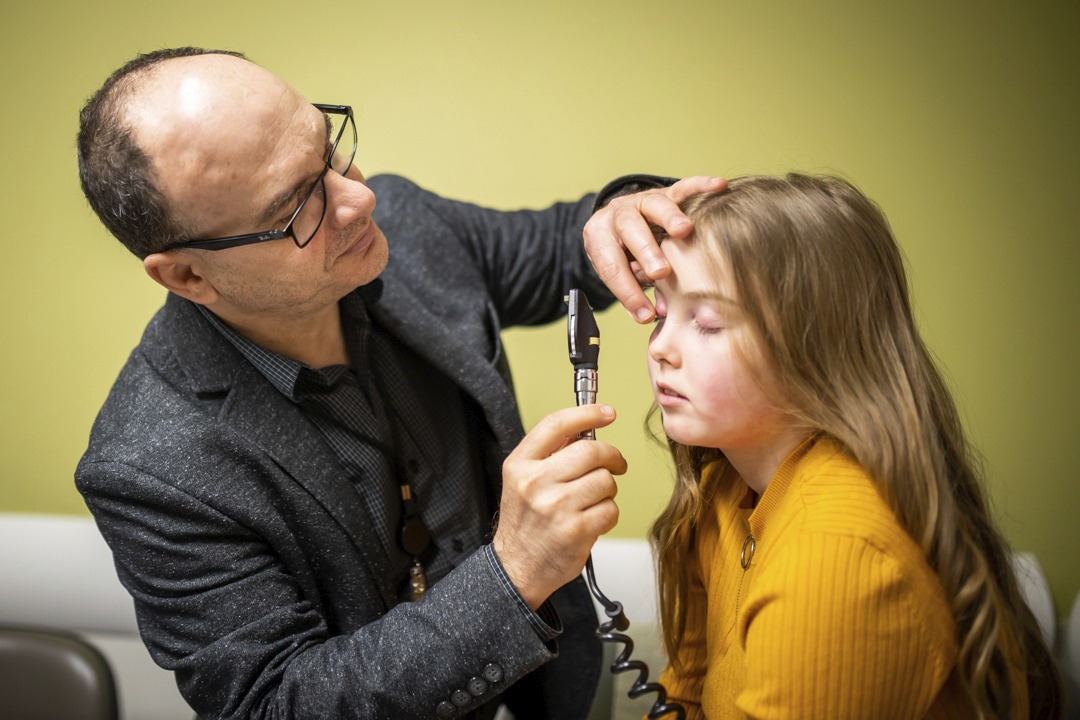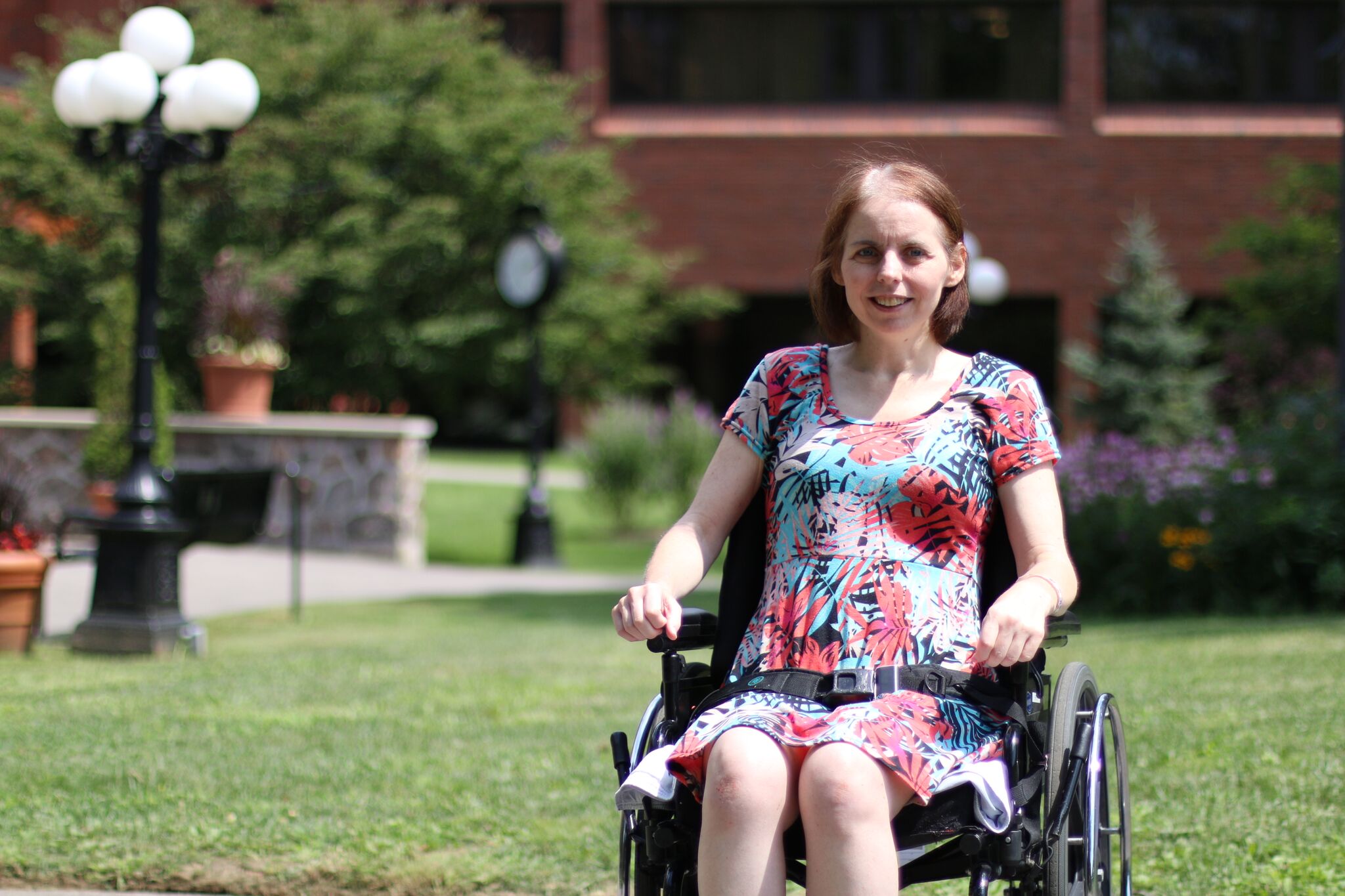
Rare disease doesn’t keep Tyler down

Eight-year-old Tyler Whitehead is a very active and outgoing child. He loves to swim, ride his bike, jump on the trampoline and go camping. Even when he plays on his virtual reality headset he doesn’t stop moving. And that’s a good thing. Being active is an important part of keeping his lungs functioning because Tyler has a rare disease.
Tyler is suspected to have a rare condition of ciliary dysfunction. This condition occurs when the cilia in the body don’t work properly. The cilia are a major part of the respiratory system. They are little hair-like structures in the lungs that move debris, especially mucus, out of the airways.
For Tyler, his respirologist thinks as a result of his condition, mucus can build up in his lungs and cause an infection. Cilia are also present in the gastrointestinal tract, and may also be involved in Tyler’s ongoing issues with constipation.
“Ty has always struggled with constipation and reflux, even as a baby, and these were the primary issues we were trying to manage,” says Sara Whitehead, Tyler’s mom. “But he also had a chronic cough that just wouldn’t go away.”
Connecting the dots between care teams for a diagnosis
In 2020, after working with both the Whitehead’s family doctor and Tyler’s pediatrician on multiple treatments for the wet cough, he was referred to the respirology clinic at Hamilton Health Sciences McMaster Children’s Hospital (MCH). This was after he had already started going to MCH’s gastroenterology clinic for his constipation and reflux.
A few months later, Tyler got very sick and was admitted to MCH. At this point, his care teams came together to consider if his medical issues were connected.

Dr. Anya McLaren-Barnett
“Since ciliary dysfunction is rare, it requires thinking about and testing for many other conditions before even considering it,” says Dr. Anya McLaren-Barnett, Tyler’s pediatric respirologist at MCH. “His symptoms do present somewhat similarly to cystic fibrosis, so when that was ruled out I started thinking about less common diseases.”
Cystic fibrosis also affects the body’s ability to clear mucus out of the lungs, however that disease presents in the cells themselves, not the cilia. While cystic fibrosis affects about 1 in 3,600 people in Canada, ciliary dysfunction conditions only affect approximately 1 in 20,000 people worldwide.
The good news is that treatment for both is somewhat similar in that it focuses on clearing the mucus from the lungs. Once McLaren-Barnett suspected that this was the case for Tyler, she began him on a treatment plan. Two times a day, Tyler requires chest physiotherapy techniques using multiple breathing apparatuses. Plus, he’s on an anti-inflammatory medication to help reduce the inflammation caused by stagnant mucus.
“Sara has been an incredible advocate for Tyler. She’s not only very diligent with his treatment, but very observant, which makes my job easier.”
“We have a routine that we go through each morning and night, which takes roughly an hour each time,” says Sara. “Plus, keeping him active throughout the day helps.”
Managing a chronic disease is a team effort
Since this was all happening during the pandemic, doing school virtually required too much sitting, so Sara decided to home school Tyler and has continued to do so.

Sara and Tyler Whitehead
“Sara has been an incredible advocate for Tyler,” says McLaren-Barnett. “She’s not only very diligent with his treatment, but very observant, which makes my job easier. It’s a team effort when it comes to managing a child’s chronic disease.”
Sara has worked hard to keep Tyler healthy, but between his lungs and his gastrointestinal issues, he has ended up being admitted to MCH a few times since discovering his ciliary dysfunction.
“If it wasn’t his lungs that was the cause of the hospital visit, it usually ended up being the reason he stayed,” she says. “It’s hard to keep the mucus moving out of his lungs when he’s lying in a hospital bed.”
While Tyler doesn’t like being admitted, he does have things he likes about being at MCH, says his mom.
“Of course he loves the outdoor courtyards, but he actually has a favourite patient room in the pediatric inpatient unit. It’s a private room that he usually ends up in to help prevent further infection, but it makes him feel important,” Sara says. “Some of the nurses on the unit have even inspired him and he says he wants to be like them when he grows up.”
But for now, the goal is to keep him out of the hospital as much as possible, except for his scheduled appointments. Sara and McLaren-Barnett will continue to manage the disease in an effort to prevent permanent damage to the lungs. And Tyler will have no problem keeping himself moving.
February 29 is Rare Disease Day, meant to raise awareness and generate change for the millions of people around the world living with a rare disease.



